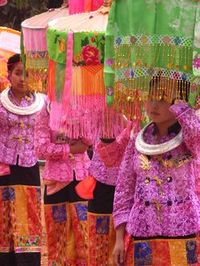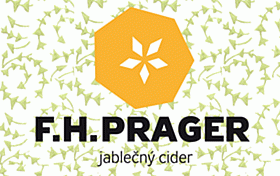UK, 2013, 45 min
Johannes Sjoberg
27.01.2013 11:00
Johannes Sjoberg will present ethnofiction which is used as a complementary approach to anthropological research and representation. Ethnographer´s informants improvise their cultural knowledge in front of camera, revealing aspects of culture that would be hard to uncover and represent with traditional anthropological research methods.
The language of communication is English.
Japan, 2011, 30 min
Ito Satoru
26.01.2013 20:20
 This film focuses how people share a collective sense of history through the auditory experience. dehong Tai people embrace Theravada Budhism. In ordes to live better in this world and the next, they perform dignified rituals and acquire "merit". For the rituals they spend years and save money, then they do a good deed like contribution of Budhist statues and building the bridges. chief donators commission an intellectual to write historical scriptures to hand down the good deed to posterity. It is called "Lik Yaat" in Tai and written with beautiful words and rhyme. After the cultural revolution, only a few intellectuals can create and chant "Lik Yaat" now. There is a woman, Wan Xiand-ya, who strives for the tradition of "Lik Yaat". She should be their first and last female intellectual who can write "Lik Yaat" in Tai history.
This film focuses how people share a collective sense of history through the auditory experience. dehong Tai people embrace Theravada Budhism. In ordes to live better in this world and the next, they perform dignified rituals and acquire "merit". For the rituals they spend years and save money, then they do a good deed like contribution of Budhist statues and building the bridges. chief donators commission an intellectual to write historical scriptures to hand down the good deed to posterity. It is called "Lik Yaat" in Tai and written with beautiful words and rhyme. After the cultural revolution, only a few intellectuals can create and chant "Lik Yaat" now. There is a woman, Wan Xiand-ya, who strives for the tradition of "Lik Yaat". She should be their first and last female intellectual who can write "Lik Yaat" in Tai history.
Ito Satotu studied Cultural Anthropology and Ethnomusicology in The Graduate University for Advanced Studies. now he id a Ph.D candidate and Visiting Researcher of National Museum of Ethnology, Osaka. He had done his 3 year fieldwork at tai village in Dehong prefecture, Yunnan Province, China. This film his first Anthropological film.
Director: Ito Satoru
Language of dialogues: Thai language in Dehong area, Yunnan Province, China
Language of subtitles: English, Czech
Launching of film,awards:
The Best Film, debut Competition, 6th Moscow International International Festival of Visual Anthropology (8-12 October 2012, Moscow, Russia)
12th RAI International Festival of Etnographic Film (23-26 june 2011, London, England)
9th WorldFilm - Tartu festival of visual culure (19-25 March 2012, Tartu Estonia)
UK, 2012, 45 min
Johannes Sjoberg
27.01.2013 13:00
Film reflection of the possibilities of using ethnofiction as an anthropological method during research of Brazilian transgendered communities in Sau Paulo.
World Premiere!

 This film focuses how people share a collective sense of history through the auditory experience. dehong Tai people embrace Theravada Budhism. In ordes to live better in this world and the next, they perform dignified rituals and acquire "merit". For the rituals they spend years and save money, then they do a good deed like contribution of Budhist statues and building the bridges. chief donators commission an intellectual to write historical scriptures to hand down the good deed to posterity. It is called "Lik Yaat" in Tai and written with beautiful words and rhyme. After the cultural revolution, only a few intellectuals can create and chant "Lik Yaat" now. There is a woman, Wan Xiand-ya, who strives for the tradition of "Lik Yaat". She should be their first and last female intellectual who can write "Lik Yaat" in Tai history.
This film focuses how people share a collective sense of history through the auditory experience. dehong Tai people embrace Theravada Budhism. In ordes to live better in this world and the next, they perform dignified rituals and acquire "merit". For the rituals they spend years and save money, then they do a good deed like contribution of Budhist statues and building the bridges. chief donators commission an intellectual to write historical scriptures to hand down the good deed to posterity. It is called "Lik Yaat" in Tai and written with beautiful words and rhyme. After the cultural revolution, only a few intellectuals can create and chant "Lik Yaat" now. There is a woman, Wan Xiand-ya, who strives for the tradition of "Lik Yaat". She should be their first and last female intellectual who can write "Lik Yaat" in Tai history.


